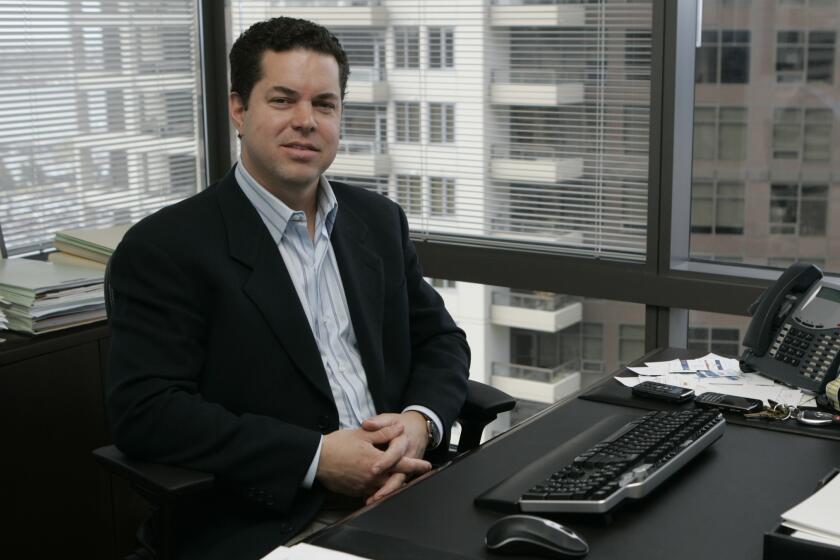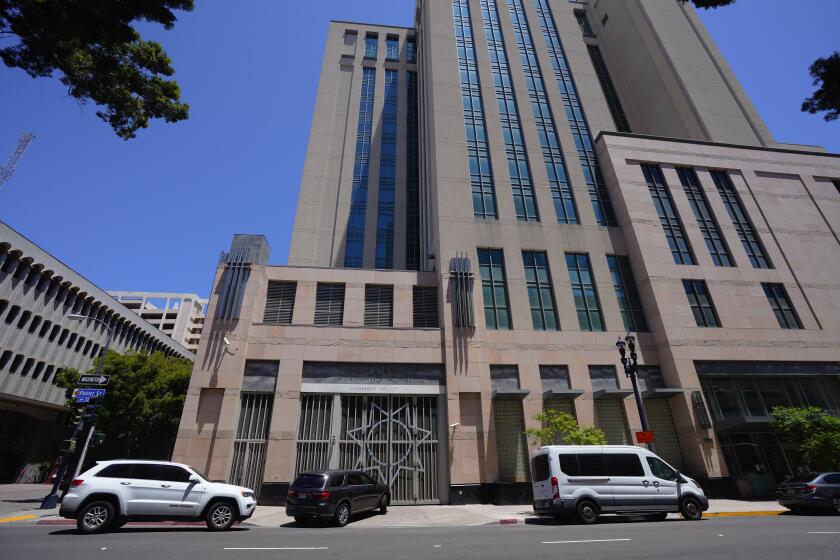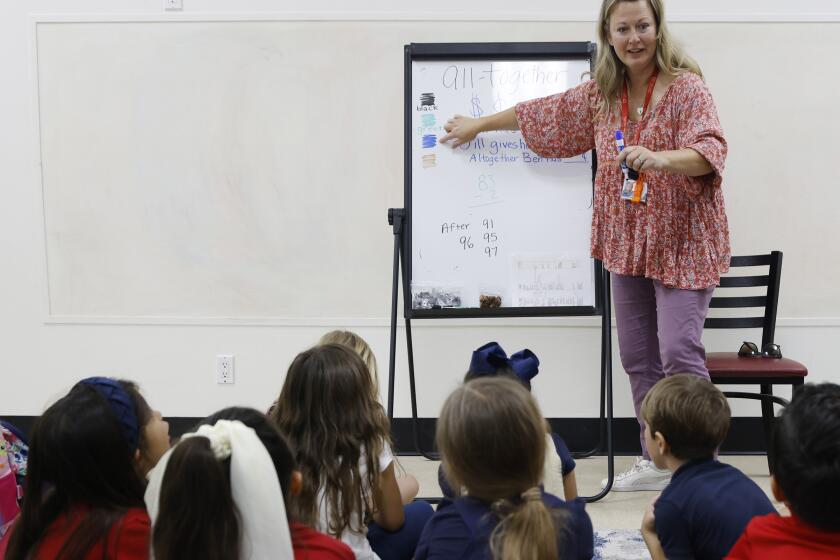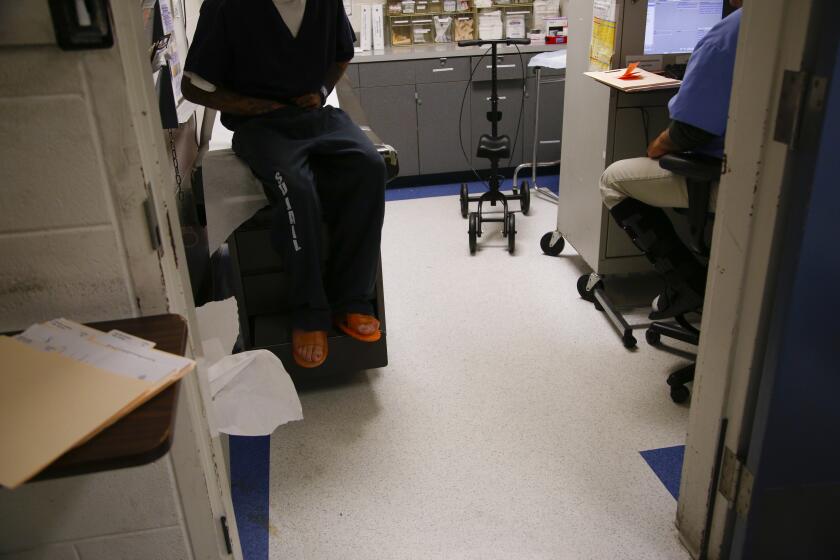If they’re dead, then who voted?
Identities of opera singer, World War II veteran, used for balloting
View the Video If they're dead, then who voted?
Francis J. DeGregory was a World War II Army veteran who served in the Battle of the Bulge. He died in 2008 and is interred at Fort Rosecrans National Cemetery.
Dara Welty was an aspiring opera singer and La Jolla native who died of a blood clot during a visit to Bolivia in 1998, at 22.
Both went on to vote — repeatedly — in San Diego County elections, records show. They remain registered to vote to this day, DeGregory as a Republican and Welty as a Democrat.
Amid a national debate about whether states should pass new laws to curb voter fraud, U-T Watchdog found their cases in a review of county elections data.
“My father was very patriotic, very civic-minded,” said Janet Thompson, Degregory’s daughter. “Both my parents were extremely ethical people. I would like to think it’s a clerical error.”
The review found that 26 ballots have been cast in the names of 10 dead San Diego County citizens since 1998.
Mail-in ballots were the most common way to vote in the name of a deceased person, accounting for 21 of the votes in question — and all the votes cast for DeGregory and Welty.
The election in which the most posthumous votes were cast was in November 2012. Six votes were cast in the name of the deceased that round, twice as many as in the next-closest election.
“Every second of the day, people are dying, people are moving, people are turning 18, and there’s always going to be lag time updating the voter rolls,” said Michael Vu, who heads the county’s Registrar of Voters.
When it comes to disqualifying voters, Vu said his office faces a “huge balancing act between being overly aggressive and removing voters off the rolls and disenfranchising them.”
The National Voter Registration Act of 1993 limits the circumstances under which states can remove voters from the rolls. In California, voters can cancel their own registration with a written request to election officials, but disqualification initiated by the registrar is more complicated.
If Vu’s office receives an official death record from the county’s Office of Vital Records and Statistics, it can remove voters without running afoul of state or federal law. In the absence of that record, Vu can only refer suspicious cases to the District Attorney’s Office or the Secretary of State for further review.
“If there’s information that comes to us in that light, we would refer it to proper law enforcement,” Vu said.
[Listing: Votes cast in the name of 8 more]
The U-T compared a national Social Security death database with local voter rolls to look for matches. An initial set of 100 close matches was winnowed to 10 confirmed cases of voters shown in records as voting after they died.
All 10 were still listed as eligible voters in county records as of May, which is when the data was captured.
More instances of after-death votes may exist, especially for deaths after 2011. In that year, the Social Security Administration began excluding information about the location of deaths in its publicly available data, limiting its usefulness.
Twenty-six votes cast on behalf of dead people is a minuscule tally in light of millions of votes cast, but long-running patterns such as the Welty and DeGregory records indicate problems identifying chronic posthumous votes.
Vu said the registrar is reviewing the U-T’s findings and will hand information about Welty and DeGregory over to the authorities for further review.
14 votes or more
In Welty’s obituary, she was remembered as an adventure-seeking world traveler and a passionate activist for causes such as Amnesty International.
“She wanted to make a difference in people’s lives,” her mother, Dolores Welty, was quoted as saying.
But not like this.
Welty’s identity has been used to cast 14 votes since her death.
A 15th vote was also cast in her name, in the 2004 presidential primary. County records show it was sent in but never certified — raising the possibility that the vote was invalidated, but her registration was not then revoked.
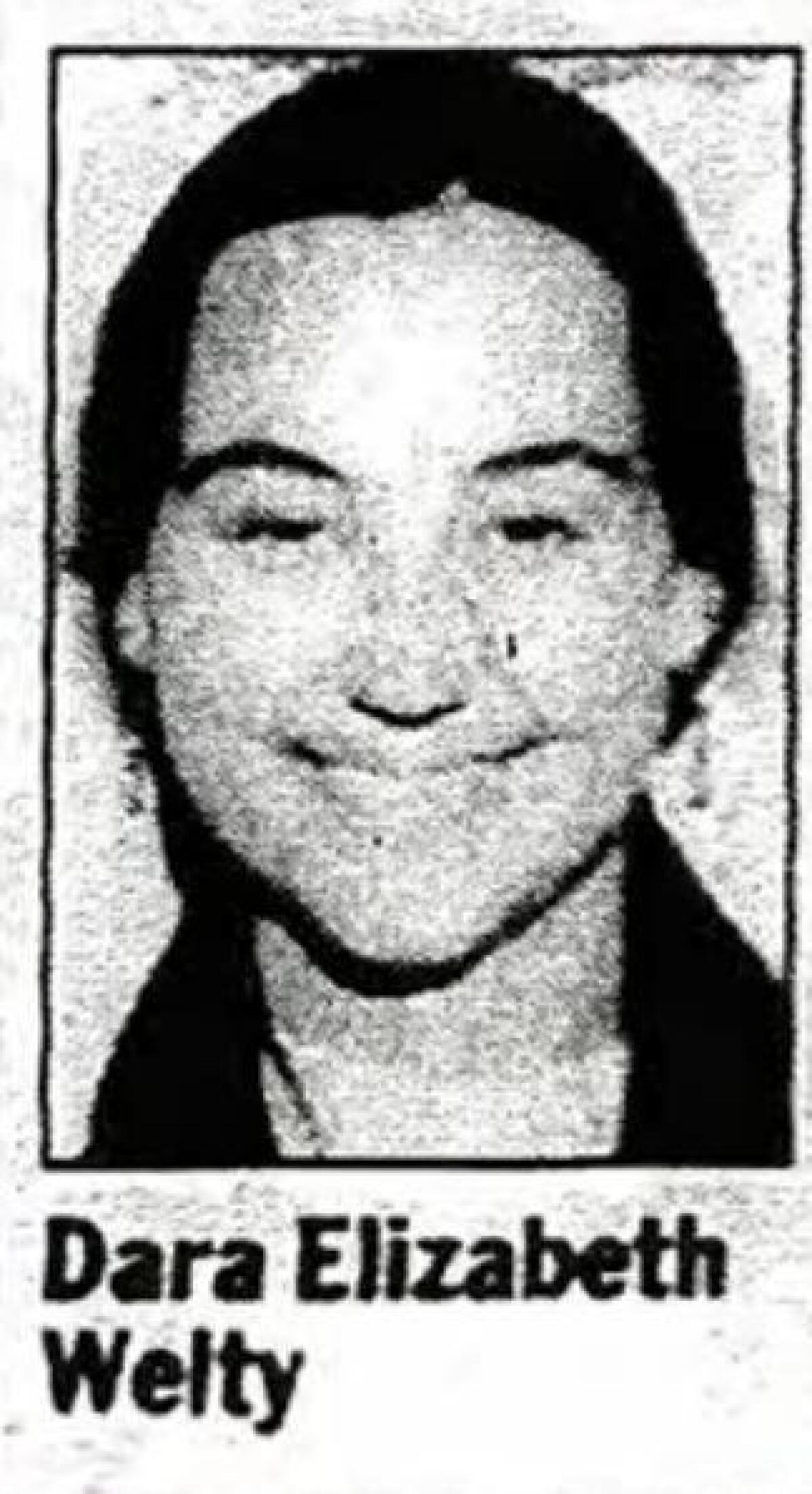
Welty’s address of record is an Encinitas home where her mother still lives. Dolores Welty told the U-T that the county still sends mail for Dara to the house. Earlier this year, Dara Welty received a jury summons.
Dolores Welty, a retired teacher, is also a registered Democrat and a frequent voter. In every election in which a ballot was cast for her daughter, she also voted.
Dolores Welty has voted in all but two elections she was eligible for since 1990, the 1998 gubernatorial primary and a 1999 special election on library funding. No votes were cast for her daughter in those elections, either.
Campaign finance records from the Center for Responsive Politics show that the mother has donated more than $51,000 to Democratic causes, committees and candidates since 1992.
Asked if she had ever sent in absentee ballots on her daughter’s behalf, Welty said she hadn’t.
“It’s weird,” she said. “It’s very weird. I wouldn’t know how she would vote.”
After a pause, Welty added, “She would vote vegetarian.”
Permanent absentee
DeGregory, a former San Diegan, died in Tennessee at the age of 89. His obituary highlighted his service in the second surge of the Battle of the Bulge.
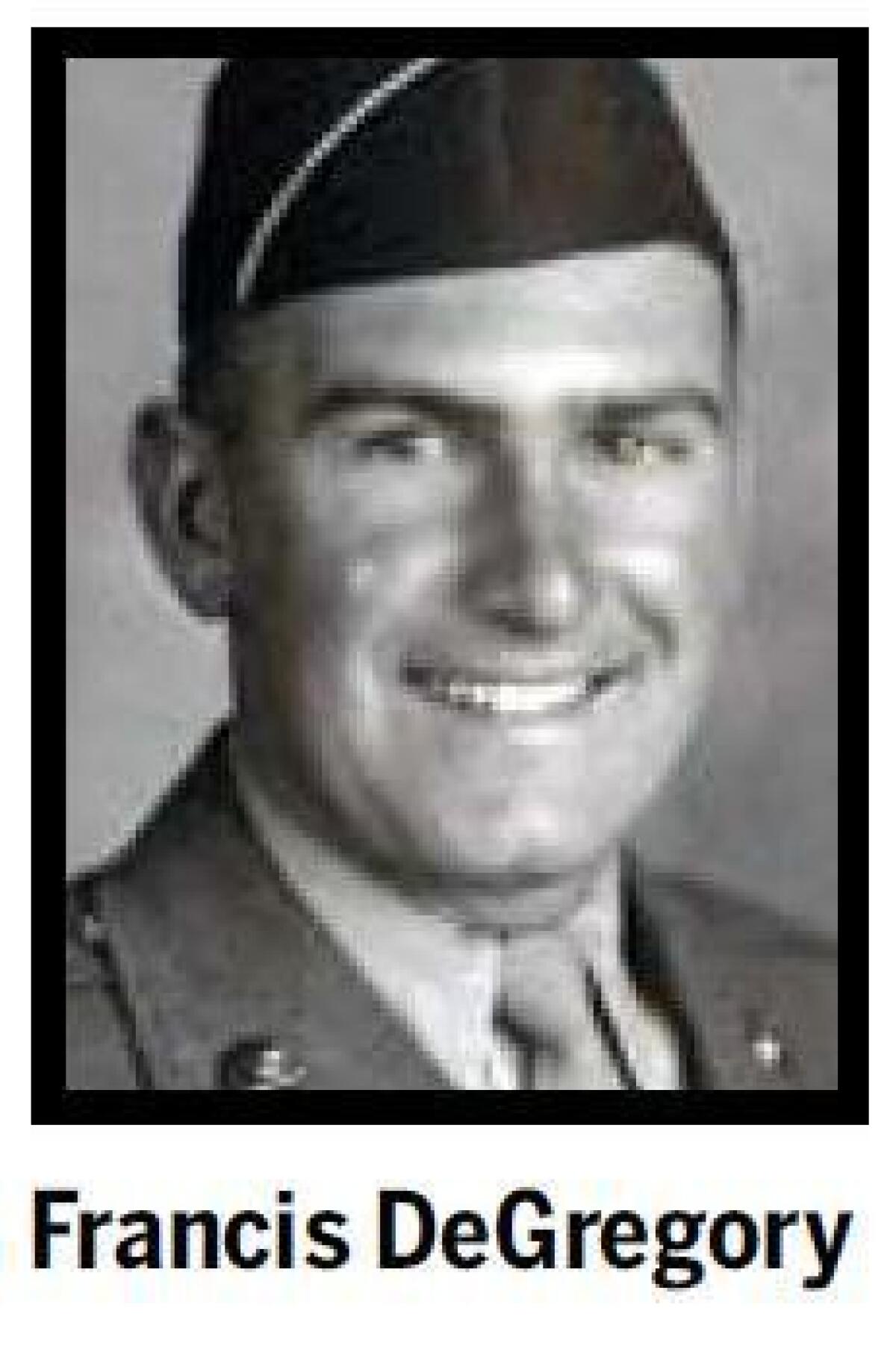
Records show he has voted four times since his death — in June 2010, November 2012, November 2013 and February of this year.
DeGregory is enrolled to automatically receive mail-in ballots at an address in Scripps Ranch every election cycle.
Thompson, DeGregory’s daughter, said the veteran moved to Tennessee to live with her in 2007 after his wife, Evelyn, died.
He suffered from dementia and received hospice care when he lived in California, she said. Thompson was surprised to learn that votes had been cast in DeGregory’s name after his death — and that he was registered as a Republican.
“He was from Massachusetts originally, and being a union guy, I would have guessed Democrat,” she said.
County records show DeGregory registered to vote in October 2004 at the Scripps Ranch home, owned by a granddaughter.
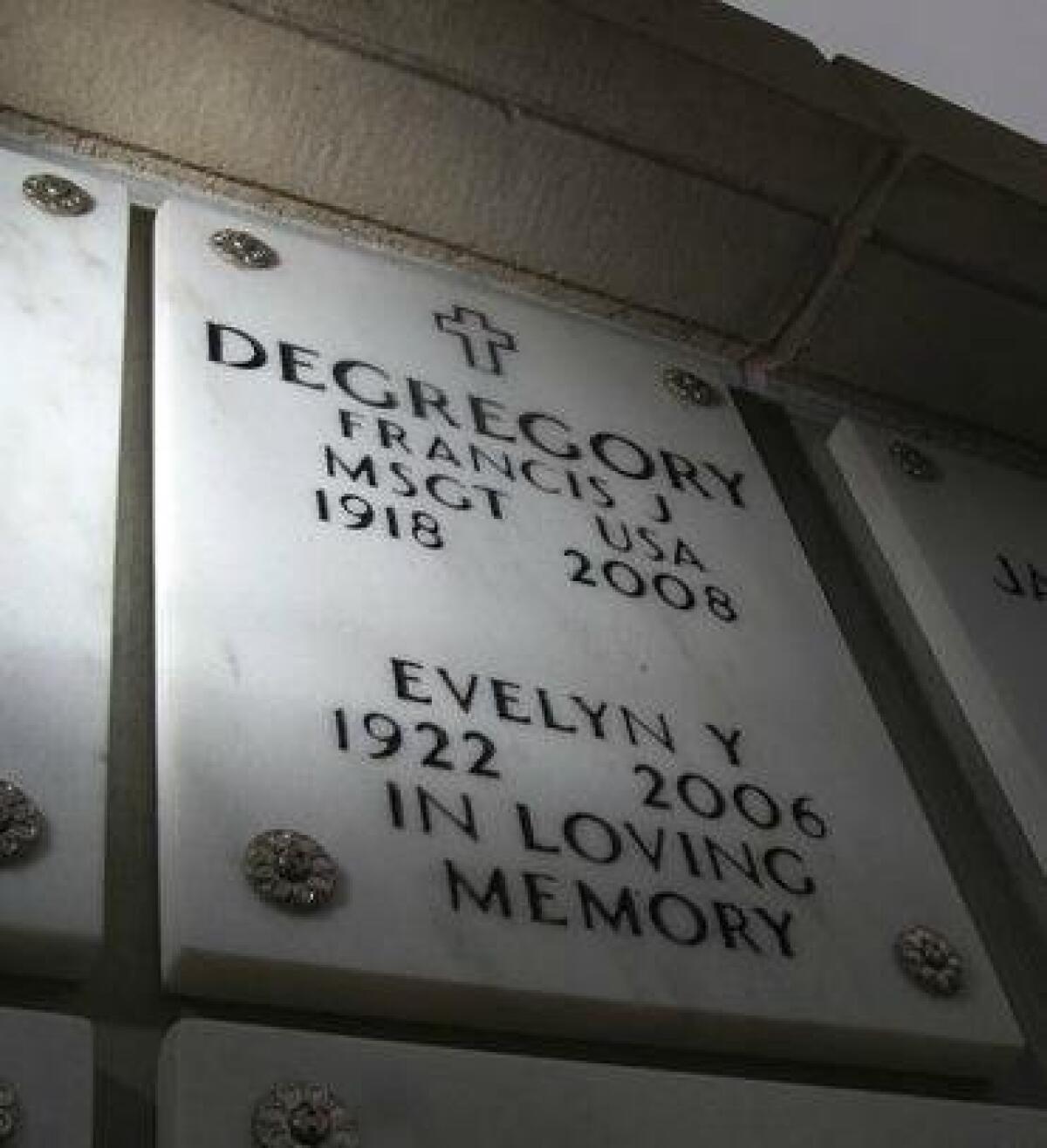
DeGregory’s 71-year-old son, Francis J. DeGregory Jr., told the Watchdog that he lives at the Scripps Ranch house part of the year. He said he is registered to vote in San Diego County and uses mail-in ballots here, although county records did not bear that out.
The son said he lives in South Lake Tahoe most of the time, and public records there show a Francis J. DeGregory with the son’s date of birth registered to vote there as a Republican. That voter has cast ballots in three elections since 2009, most recently in June.
Perjury warning
More than 1.5 million people are registered to vote in San Diego County. Keeping track of that many voters is a daunting task, but it’s unclear why the county failed to flag votes for Welty and DeGregory, whose obituaries are publicly available.
An online search for Welty and DeGregory immediately shows that both have been dead for years. DeGregory’s name is even inscribed on a grave at Fort Rosecrans National Cemetery. But the county clerk’s office keeps no death records for people who once lived in San Diego and died elsewhere.
“Death records are kept for the county where the person passed away,” said Valeria Orendain, a San Diego County assessment clerk. “If they were born in San Diego but passed away in San Francisco, the death records would be kept in San Francisco County.”
But in four of the cases identified by the U-T, the voters were listed in San Diego County’s own death records.
One was John F. Neibert, shown in county records as dying on Christmas Day, 1995, at age 71.
Records show he was registered to vote a year and a half after his death, with no party preference. A mail-in ballot was cast in his name in the 2012 general election.
Neibert’s son, John F. Neibert Jr., is registered to vote as a Republican at the same house. He didn’t return a call for comment.
The registrar’s office said the deceased father’s vote may have been a clerical error.
“We’re only as good as the information we receive,” Vu said. “We err on the side of the voter unless have explicit evidence otherwise.”
While the registrar’s office has no authority to enforce or investigate potential voter fraud, Vu said his office has some additional safeguards at its disposal.
The registrar can place voters on inactive status if mail sent to them is undeliverable, although officials cannot take any further action for at least 22 months after doing so. Also, mail-in ballots include a perjury warning that it’s it illegal to vote in the name of another person.
Anna Buckley contributed to this report
Watchdog
- Submit tips | Call 858-224-BARK | Facebook | Twitter | Google+
Get Essential San Diego, weekday mornings
Get top headlines from the Union-Tribune in your inbox weekday mornings, including top news, local, sports, business, entertainment and opinion.
You may occasionally receive promotional content from the San Diego Union-Tribune.

